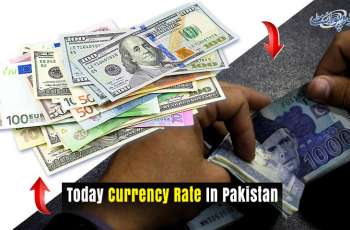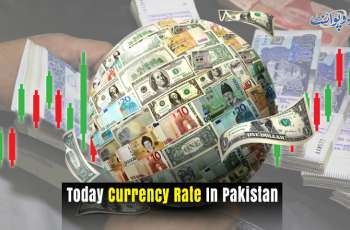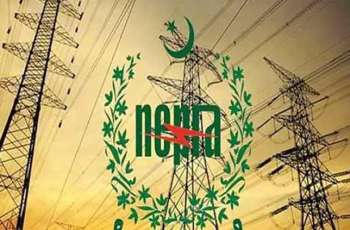WASHINGTON (Pakistan Point News / Sputnik - 06th November, 2018) Iran will continue selling oil despite the United States re-introducing massive sanctions on Iranian entities and individuals and granting waivers to only eight countries to purchase the country's oil, Iran's President Hassan Rouhani said.
"The fact that the Islamic Republic of Iran can sell its oil and will sell its crude ... even if these countries [buyers of Iranian oil] have not been offered waivers. We would have been selling our oil with honor ... We will break these sanctions with honor, because these sanctions are cruel and are against the international law," Rouhani said, as quoted by Press tv on Monday.
Earlier in the day, the United States re-imposed massive sanctions on Iran targeting the country's energy, shipping, banking and shipbuilding sectors while granting exemptions to eight nations - China, Taiwan, Greece, South Korea, Turkey, Italy, India and Japan - for oil purchases from Tehran.
US State Secretary Mike Pompeo said the United States will exert "relentless" pressure on Iran unless it changes its "revolutionary course." The announcement came hours after President Donald Trump restored all sanctions that were lifted under the nuclear agreement with Iran, formally known as the Joint Comprehensive Plan of Action (JCPOA).
The United States re-imposed sanctions against Iran in August, but experts believe that the second round imposed on Monday is the most significant as some 700 entities and individuals were designated, including financial and other institutions as well as aircraft and other vessels.
Among the sanctioned entities are the country's largest civilian airliner Iran Air and the Atomic Energy Organization of Iran. In addition, the United States sanctioned some 50 financial institutions, including the Russian subsidiary of Iran's Mir business Bank as well as two Belarus-based banks - Torgovy Kapital and Onerbank.
Iran's Foreign Minister Mohammad Javad Zarif said after the United States re-imposed the second round of sanctions that Tehran is ready to re-engage with the United States to establish a new nuclear deal.
"We are willing to wait out this approach. The Trump administration can change its approach ... We don't care who is behind that approach," Zarif told USA Today.
Zarif criticized the United States for failing to be a reliable negotiating partner, adding that Iran is not only willing to resume its oil sales but also stands ready to engage with the United States on an alternative approach.
European Union High Representative of the Union for Foreign Affairs and Security Policy Federica Mogherini told the UN General Assembly that the bloc is looking into possible vehicles to safeguard Iran's oil trade as the country faces US sanctions.
"This will mean that EU member states will set up a legal entity to facilitate legitimate financial transactions with Iran and this will allow European companies to continue to trade with Iran in accordance with European Union law and could be open to other partners in the world," Mogherini said.
European Union officials have said they came up with several initiatives to keep Iran in the multilateral nuclear agreement, including setting up a Special Purpose Vehicle (SPV) with Russia and China to allow countries to bypass the US sanctions and continue trading with Iran.
US Treasury Secretary Steve Mnuchin said on Monday that the United States has agreed to permit the European Union to keep conducting certain humanitarian and trade transactions with Iran.
Other than the European Union and Iran, Russia and China have both decided to sidestep the US sanctions regime and continue trading oil with Iran.
"China regrets the US decision. We also noted that the international community spoke against the use of unilateral sanctions and extraterritorial jurisdiction," Chinese Foreign Minister Hua Chunying said on Tuesday. "China will stick to its position of impartiality, objectivity and responsibility and will work to preserve the Joint Comprehensive Plan of Action, while firmly protecting its lawful interests."
Russian officials echoed the Chinese sentiment, saying that the International Atomic Energy Agency (IAEA), the international watchdog, has numerously confirmed Iran's compliance with the nuclear deal.
Bushehr is Iran's first nuclear power plant whose construction began in 1975, but was suspended during the 1978-1979 Islamic revolution and amid Western sanctions against Tehran. Germany, which was responsible for constructing the power plant, joined the United States in imposing restrictive measures against Tehran.
Iran reached a deal with Russia on constructing the first stage of the Bushehr nuclear power plant project - the Bushehr 1 - in 1992. The plant was connected to the national electric grid in 2011 and reached full capacity the following year. Russia's Rosatom nuclear energy corporation is currently working on constructing the second stage of the power plant.



